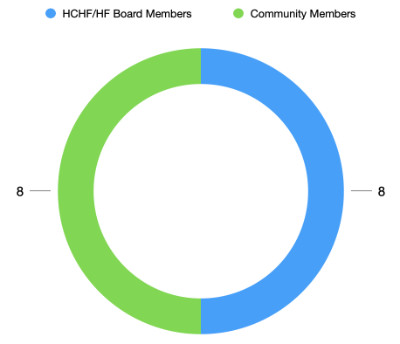The Howard Community Health Foundation is responsible for setting and evaluating our strategic plan, which the Horizon Foundation then carries out.
Our Current Strategic Plan
For the first time in 25 years, the Foundation has changed its vision, mission and values to better represent a bold new direction. The five-year strategic plan lays the groundwork for our future. A future where we are committed to being a Foundation that leads with racial equity as our north star, and one that partners with community at every level to deliver trust-centered philanthropy that drives impact in the areas of greatest need.
Our Strategic Planning Process
In order to co-design what our new strategic plan and programs would look like with the community, our most recent process looked much different than previous ones. It included deeper and more inclusive community engagement, an expanded, community-inclusive decision-making table and a more intentional inquiry into how to center anti-racism and trust-based philanthropy. We sought input from a broad cross-section of the community, including residents most impacted by health inequities and frequently excluded from decision-making. We expanded Horizon’s strategic planning body to include a 50/50 split of HCHF Trustees and community members – which has continued to meet throughout 2024 as we began implementation of the new plan – to hold us accountable and steer us in a direction to best suit the needs of the community. And we pushed current grantees, partners and community leaders to embrace a new and equitable vision of the future.
Throughout 2023 we engaged 2,600 people and intentionally included grantees, community-based organizational leaders, policymakers, community members across the socio-economic spectrum and community members of color to better understand their barriers to living a long, healthy life. We also worked with new research partners, led by, and often staffed by, people of color with deep experience in community engagement. Our partners wanted to get a sense of residents’ needs and challenges, and the results highlighted common ground across the county, as well as nuances between populations.
We are committed to being as transparent, equitable and inclusive as possible so we can co-create a shared future that will make good health achievable for everyone in Howard County.
What We Learned
We engaged deeply with our community and gathered important information about the lived experiences of and significant barriers faced by residents of color, especially those who live in lower-income households. Hear more about the data we collected in these presentations from several of our partners who have been with us along the way.

